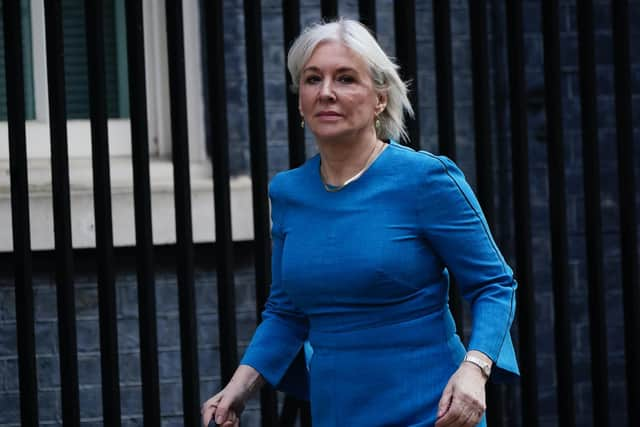Government ‘could face legal challenge’ over plans to sell Channel 4
Two separate bills, one which propose the sale of the broadcaster and another which would ensure all Government policies must align with the ‘levelling up agenda’, were announced in the Queen’s Speech yesterday.
Henri Murison, Director of The Northern Powerhouse Partnership, said there is a clear contradiction as Channel 4 drives investment and supports thousands of jobs outside London, and a number of TV production companies are "considering legal action” as the Government may put that all at risk by selling the broadcaster.
Advertisement
Hide AdAdvertisement
Hide AdHe said: “The government can ignore public opinion but because of these new ‘levelling of tests’ there is the option for legal challenge. That may very well mean the government isn't able to sell it if they want to.


“There’s a number of legislative and legal hurdles that they face.”
He added: “A lot of the independent TV companies currently rely on Channel 4 and have a strong incentive to take legal action. My guess is some of them will.”
It comes as Ministers are facing calls from members of their own party to reconsider the plan for privatisation, which was not in its 2019 General Election manifesto.
Advertisement
Hide AdAdvertisement
Hide AdLast month, three Yorkshire-based MPs, Kevin Hollinrake, Jason McCartney and Alec Shelbrooke, warned the Prime Minister it "could threaten jobs in our region" and is “contrary to the goals of our levelling up agenda”.
The state-owned broadcaster, which was set up by Margret Thatcher’s government, follows the ‘publisher-broadcaster model’, which means it does not make its own programming and instead commissions more than 300 independent production companies to produce shows.
Channel 4 also set up a new national headquarters in Leeds, as well as hubs in Bristol and Glasgow, after Ministers fulfilled a promise outlined in the Conservatives’ 2017 general election manifesto by urging the broadcaster to relocate outside of the capital.
A report compiled by EY stated Channel 4 generated £274m for the economy and supported almost 3,000 jobs outside London in 2019.
Advertisement
Hide AdAdvertisement
Hide AdAnd last week, chief executive Alex Mahon announced the Channel 4 plans to double of staff based outside London to 600 (more than half its workforce) and spend 50 per cent of its commissioning budget outside the capital, when she published the broadcaster’s counterproposal to privatisation.
However, the Government insisted it has already decided to sell the broadcaster and been “crystal clear” that privatisation “is necessary to give Channel 4 the best possible tools to innovate and grow at pace without asking the taxpayer to effectively underwrite the business”.
'An attractive asset for potential buyers to nurture and develop'
In its consultation on privatisation, which more than 55,000 individuals and organisations took part in, 94 per cent of respondents said Channel 4 should continue providing jobs, opportunities and investment outside of London.
Advertisement
Hide AdAdvertisement
Hide AdMany argued that Channel 4 was “already delivering on its contribution to levelling up”, but some were concerned a private buyer would “put profits and efficiencies before levelling up” and re-concentrate spending in creative industries in London and the South East.
But the Government argued that Channel 4’s regional network “will be an attractive asset for potential buyers to nurture and develop” and independent production companies around the UK, which have seen revenues grow from £500m to £2.9bn over 15 years, can “continue to thrive without the publisher-broadcaster restriction”.
